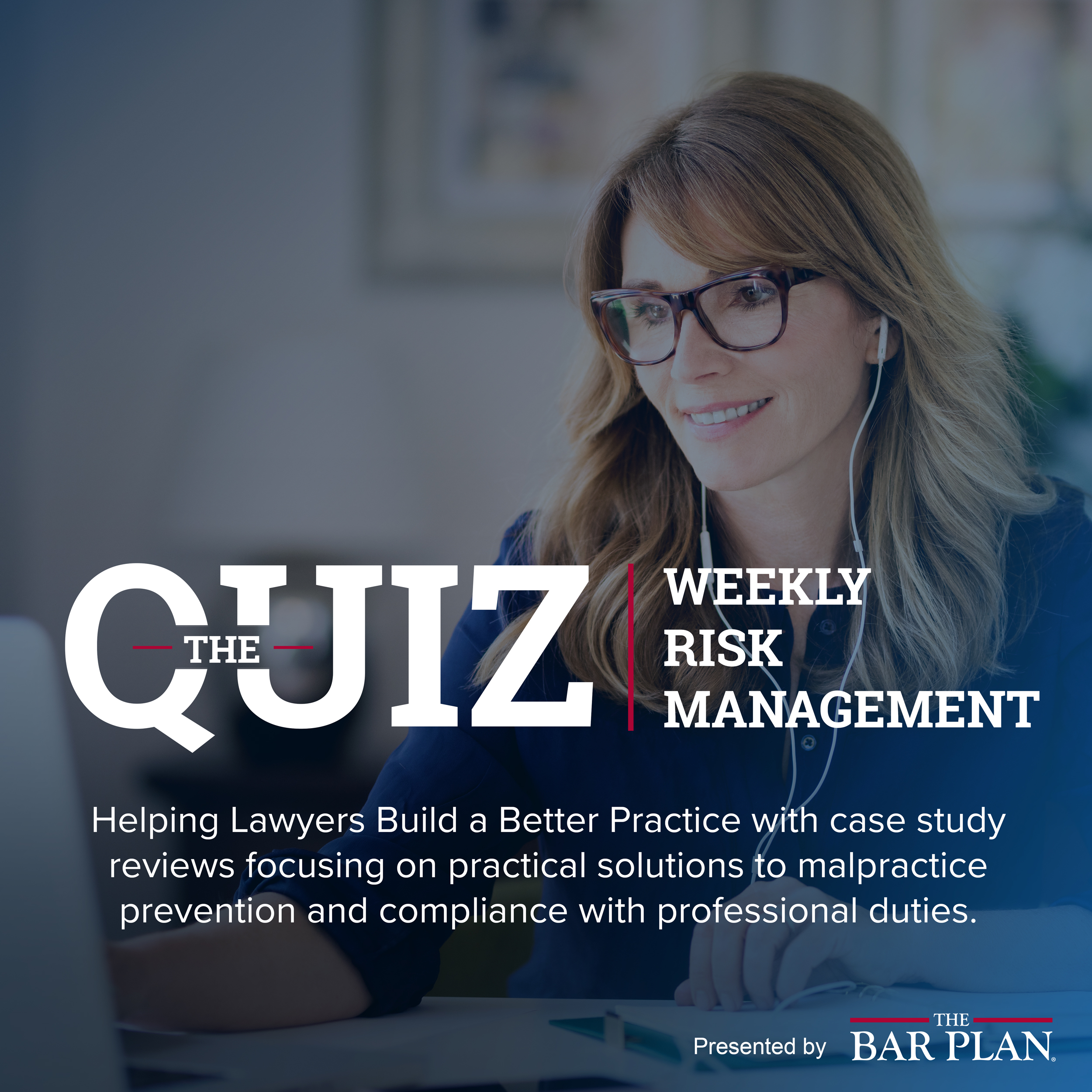QUESTION:
You serve as a mediator in domestic legal matters, including motions to modify. You mediate a motion to modify between two unrepresented individuals, and they ask you to prepare the necessary documents for their modification.
You:
A. May draft the documents as a neutral mediator.
B. May draft the documents as an attorney for both parties to the modification.
C. May only draft the documents if all parties give informed consent, attorney represents only one party, and the unrepresented party fully understands the ramifications of the arrangement.
D. Shall not draft the documents.
CORRECT ANSWER: C*.
(*CLICK HERE TO SEE TENNESSEE-ONLY UPDATE)
May only draft the documents if all parties give informed consent, attorney represents only one party, and the unrepresented party fully understands the ramifications of the arrangement.
Rule of Professional Conduct 1.12 prohibits any attorney from representing anyone in conjunction with a matter in which the attorney served as an arbitrator, mediator or other third-party neutral unless all parties to the proceeding give informed consent, confirmed in writing. See Missouri Rule 4-1.12(a), New Mexico Rule 16-112(A), and Rule 1.12(a) in Kansas, Indiana, and Tennessee.
Additionally, joint representation of both parties in the Motion to Modify proceeding is impermissible because it would involve the assertion of a claim by one client against another client in the same litigation, which is a nonconsentable conflict of interest. See Missouri Rule 4-1.7(b)(3), New Mexico Rule 16-107(B)(3), and Rule 1.7(b)(3) in Kansas, Indiana, and Tennessee. This is true for any matter, regardless of whether or not you acted as a neutral in it and regardless of how “amicable” the parties appear to be.
These rules make clear that, if informed consent to the representation is obtained from both parties, the attorney will only be able to represent one party and solely that party. Further, it is essential that the attorney clearly communicate to the non-represented party that the attorney will not be representing that party’s interests. See Missouri Informal Opinion 2010-0055.
Best practices dictate that you not only obtain informed consent from both parties, but also that you completely confirm in writing both the consent itself and also all information provided to the parties to inform them about the nature of the representation and the conflict of interest. Informed consent is defined as “the agreement by a person to a proposed course of conduct after the lawyer has communicated adequate information and explanation about the material risks of and reasonably available alternatives to the proposed course of conduct,” and documenting the information provided to the parties proves you have satisfied this requirement. See Missouri Rule 4-1.0(e), Kansas Rule 1.0(f), New Mexico Rule 16-100(E), and Rule 1.0(e) in Indiana and Tennessee.
You should also work out up front which party will pay for your mediation services and which party will pay your legal fees. If a refund of legal fees becomes necessary during the representation, determine who will receive that refund. This should all be discussed and finalized before beginning any legal work for either party, and should be confirmed in writing to aid in resolving any future disputes.
Lastly, you should be aware that laws or codes of ethics for third-party neutrals in your jurisdiction may impose more stringent requirements than the Rules of Professional Conduct. Take care to fully understand your duties and discharge them appropriately in these situations.
Malpractice Insurance : Not All Policies Are The Same
Lawyers' Malpractice Insurance can be complicated and nuanced. In this explainer video we unpack an important policy differentiator that may save you money and protect your practice in the long run: FDCPA Coverage.
Want more Risk Management Content?
CLICK HERE TO GET RISK MANAGEMENT CONTENT SENT TO YOUR EMAIL.

